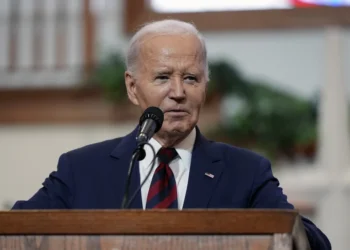President Donald Trump declared April 2, 2025, “Liberation Day,” by which he meant he was hitting other nations with varying tariffs to rectify trade imbalances and unfairness. He said it “will forever be remembered as the day American industry was reborn, the day America’s destiny was reclaimed, and the day that we began to make America wealthy again.”
Welp.
Yesterday, the Court of International Trade blocked any of Trump’s tariffs that were implemented under the International Emergency Economic Powers Act (IEEPA) of 1977. Other non-emergency tariffs, like those on steel and automobiles, remain in place. “The Worldwide and Retaliatory Tariff Orders exceed any authority granted to the President by IEEPA to regulate importation by means of tariffs,” a three-judge panel wrote. “The court does not read IEEPA to confer such unbounded authority and sets aside the challenged tariffs imposed thereunder.” One of the three judges, Timothy Reif, was appointed by Trump. Team Trump filed a notice of appeal minutes after the ruling was issued.
I can’t believe I’m saying this, but I agree with a headline at Axios: “Now what? Tariff ruling creates chaos on top of chaos.” The first sentence is also correct: “An obscure federal court blew up the cornerstone of President Trump’s economic agenda last night, unleashing more chaos on the global economy and all but wiping out his negotiating leverage with trading partners.”
I do not agree with The Wall Street Journal’s news team, which framed the ruling as “voiding the levies that have sparked a global trade war and threatened to upend the world economy.”
We were in (read: losing) a trade war long before Trump’s tariffs. The president is absolutely right about the problem of unfair trade practices by other nations, and he’s right to prioritize American interests, which nearly every president (with the exception of Ronald Reagan) has failed to do over the last 50 years.
He’s not quite as absolutely right about the solutions.
Frankly, the president’s authority to impose sweeping tariffs all over the place and then willy-nilly delay, recalculate, remove, or reimpose them is questionable. Congress has the power to tax, and tariffs are taxes, despite Trump’s semantic games. Then again, you could almost put Congress on a milk cartoon because it’s largely missing from the picture, having delegated a lot of tariff authority to the president because that’s far more convenient for the reelection prospects of incumbent representatives and senators. Few in Congress have the stomach for what Trump is trying to accomplish, and if it depends on our elected representatives to represent us, it simply won’t happen.
The court, however, ruled that there are limits to what Congress can and cannot delegate, writing, “An unlimited delegation of tariff authority would constitute an improper abdication of legislative power to another branch of government.”
If you thought there was market chaos because Trump implemented tariffs and then repeatedly changed rates, consider that companies across the country are wondering today how to calculate prices and tariff collection after yet another judicial ruling against Trump that may or may not stand. Stock markets soared on the news, but that’s only a small part of the picture.
To the point of Trump’s now significantly weakened leverage, the ChiComs spiked the football, saying it was time for the Trump administration to “heed rational voices” and end “misguided unilateral tariffs.” It would help if the Chinese would immediately stop using slave labor to flood our markets with knock-off products that are the fruit of stolen intellectual property.
What’s next?
“If upheld, the ruling means the Trump administration must find another justification for its global tariffs,” the Journal reports. “The administration has previously contemplated imposing duties under Section 301 of the Trade Act of 1974, which allows for tariffs that counter unfair foreign trade practices. That is the provision Trump used to underpin his first-term tariffs on China and is considered to be on firmer legal footing than IEEPA.”
In short, the best approach for Trump appears to be backing off the “emergency” aspects of his trade policy. It is an urgent and important matter, but just because Barack Obama and Joe Biden made “emergencies” the backbone of justification for their radical left-wing wishlist doesn’t mean that’s also a good idea for Trump. Instead, he should aim for the firmest legal footing to establish reciprocal tariffs that correct the bad behavior of foreign nations and encourage more investment and manufacturing in the United States.
That would put America first as well as operate under the Rule of Law.

















